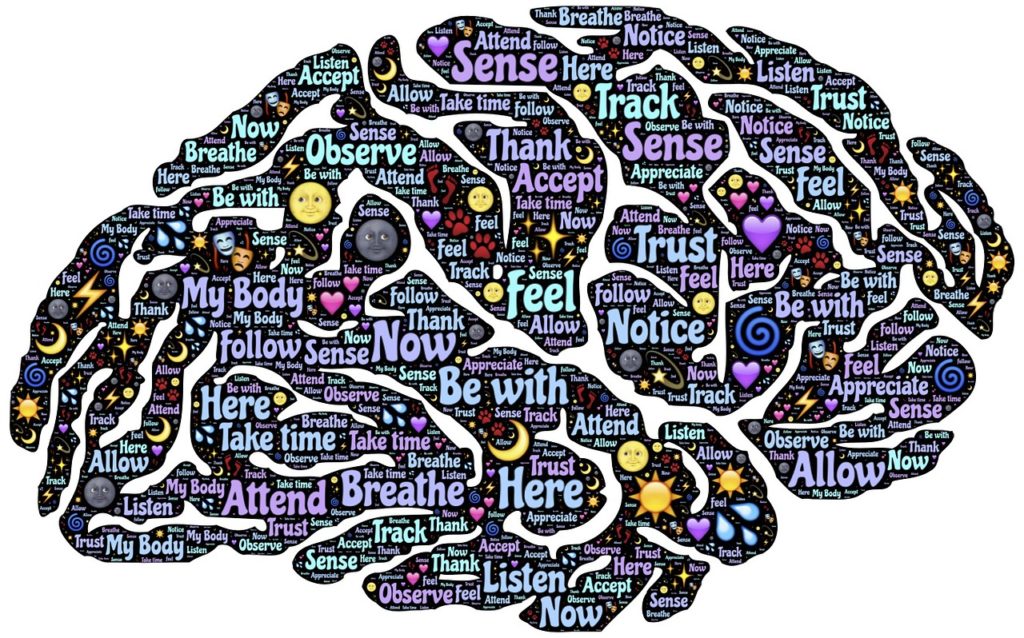Bias is a critical factor in “higher level thinking” – reason enough to be of concern.
In lower level thinking – i.e., our “normal, everyday Being Mode” – bias is that hidden influence of “our very own Svengali”…in which we are – to a greater than lesser extent – controlled. This, too, should be of concern but, because we are naturally egoistic and now (with our technology) increasingly driven to be ever more self-absorbed, we are only blissfully ignorant – or maybe not so blissfully.
But then, maybe you are concerned? If so, go here.
Confirmation bias...
...is the tendency to only see, or seek out, information that supports something you already believe.
This is a particularly pernicious type of cognitive bias - we all like that which "agrees with us" and dislike that which doesn't. Or, put another way, we move towards that which we like and away from (i.e., avoid or dismiss) that which we dislike (e.g., people we know or things that we read or hear)...
This means you will remember - or only pay attention to - the hits (i.e., the likes) and dismiss/forget the misses (i.e., the dislikes).
And this results in flawed human reasoning.
People will cue into things that matter to them and dismiss the things that don’t...which can lead to the “ostrich effect” (so named because ostriches bury their heads in the sand); i.e., one "seeks to avoid" information that may disprove their original point.
________
Haidt explains what could be a very useful critical thinking skill in rooting out unhealthy confirmation bias:
When we want to believe something, we subconsciously (i.e., here the work of bias) ask ourselves, “Can I believe it?”
We then search for supporting evidence, and if we find even a single piece of evidence (or often pseudo-evidence[!]), we can stop thinking,
for we now have "permission to believe." And we have a justification, in case anyone asks.
for we now have "permission to believe." And we have a justification, in case anyone asks.
But when we don’t want to believe something (again, this is subconscious bias), we ask ourselves, “Must I believe it?”
So we search for contrary evidence, and if we find a single reason to doubt the claim, we can dismiss it.
The critical challenge here is to be mindful of:
Is it "Can I...?" or "Must I...?"
Selection bias...
...refers to the way we notice things more when something has happened to make us notice that particular thing more...
...like when you buy a car and suddenly notice more models of that car on the road. The car has simply become part of the individual’s observations, so they tend to observe it more elsewhere.
______
Selection bias is derived from the brain functioning of "neurons that fire together wire together" (from The Anxious Brain). Emotion is in part a function of familiarity and intensity; the more often and the more important, the more we are likely to feel it (i.e., at the conscious level of the Rider).
In the example of the car above, the "intensity" (here due to the newness) will wane over time, meaning that influence of the selection bias will become less and less (w.r.t. noting other cars like yours), reaching at some point where you'll still notice but the "conscious loading" will be minimal.
D-K Effect* bias...
...refers to how people perceive a concept or event to be simplistic just because their knowledge about it may be simple or lacking
The less you know about something, the less complicated it may appear. However, this form of bias limits curiosity—people don’t feel the need to further explore a concept, because it seems simplistic to them.
This bias can also lead people to think they are smarter than they actually are because they have reduced a complex idea to a simplistic understanding. Note that this bias is a kind of self-inflicted delusion and/or ignorance.
*the Dunning-Kruger Effect.
Cultural bias...
...is perceiving other cultures as being abnormal, inferior, or exotic, simply based on a comparison to one's own culture.
Also known as implicit or social bias, this belief attributes the traits and behaviors of an individual to a larger group of people. Implicit bias creates prejudiced attitudes or misinformed stereotypes.
In-group bias...
...refers to how people are more likely to support or believe someone within their own social group than an outsider.
This bias tends to remove objectivity from any sort of selection or hiring process, as individuals tend to favor those who they personally know and want to help.
Mood bias...
...refers to how individuals are more likely to estimate a positive outcome if they are in a good mood, and a negative outcome if they are in a bad mood.
Self-serving bias...
... is assuming that good things happen to us when we’ve done all the right things, but bad things happen to us because of circumstances outside our control or things other people purport.
This bias results in a tendency to blame outside circumstances for bad situations rather than taking personal responsibility.
Availability bias...
...refers to the tendency to use the information we can quickly recall when evaluating a topic or idea - even if this information is not the best representation of the topic or idea.
Using this mental shortcut, we deem the information we can most easily recall as valid and ignore alternative solutions or opinions.
Fundamental attribution error...
...refers to a tendency to attribute someone’s faulty behaviors to negative personal traits, while attributing our own similar behavior to external factors.
For instance, when someone on your team is late to an important meeting, you may assume that they are lazy or lacking motivation without considering internal and external factors like an illness or traffic accident that led to the tardiness. However, when you are running late because of a flat tire, you expect others to attribute the error to the external factor (flat tire) rather than your personal behavior
Hindsight bias...
...(a.k.a. the "knew-it-all-along effect") is perceiving events to be more predictable after they happen.
With this bias, people overestimate their ability to predict an outcome beforehand, even though the information they had at the time would not have led them to the correct outcome. This type of bias happens often in sports and world affairs. Hindsight bias can lead to overconfidence in one’s ability to predict future outcomes.
Next bias...
...is
Next bias...
...is
*from https://www.masterclass.com/articles/how-to-identify-bias#what-is-bias

